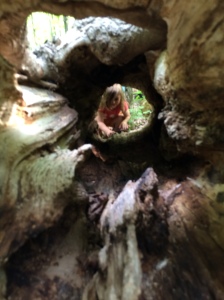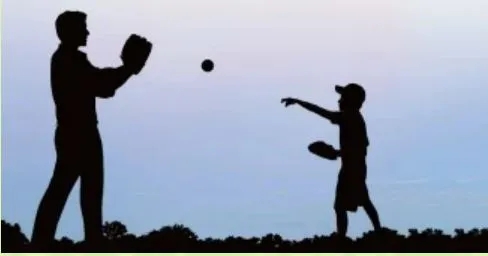It’s hard in some ways to comprehend how #KindergartenBioBlitz has expanded from a single Board initiative into a world wide invitation for young classes to explore their schoolyards. It’s been over a decade now since we first invited early years classes to explore their school yards for nature and share what they found with naturalists.
Early on in the initiative we had classes from other provinces and even from the other side of the world participating. I recall adding a photo of a skunk that was on my front lawn one morning and a class from Australia responded on Twitter saying, “That’s Pepe LePew! We don’t have anything THAT cool – we just have things like Kookaburras and Kangaroos”
As you can imagine, classes in my own hemisphere were stunned and demanded to see those critters from that class.
It became clear that when we see our schoolyards and communities through the eyes of others we see them in a brand new light.
I invite you to join us September 12th to September 16th for another version. Here is a great Stellar story on how to participate in #KinderartenBioBlitz if you are new to the project.
I also invite naturalists, retired educators and others to follow along. I often say I am “Ranger Ridley” not “Ranger Wikipedia”. In other words – it’s not my role in this wonderful sharing process to just say, “That’s a grasshopper” – it is my role to carry on the inquiry … to ask questions of the students on their discovery, to compare their find with the find of others and to keep the conversation going. If you are interested in helping out in their venue – please feel free to reach out to me to discuss.

This weekend I have run about 65 km thus far and each run has been glorious and even insightful.
A trail run is always insightful I have come to recognize but in the last number of months I have begun to run and listen to audio books as well.
My runs, as long as I have done them have been a time to reflect, to share my thoughts with nature and also to learn from what I saw on my runs as well. The last two or three years have been an emotional marathon in many ways – and I am still running it. COVID as hard as it has been was a shadow within a shadow and I ran without any clear navigation.
In the last few months I have run with the words of Kate Bowler. I’ve run with Brene Brown. I’ve run with Dr Edith Eva Eger as well. As I run all these women have helped me with my emotional and spiritual endurance.
My first run this weekend was a midnight run along a local rail trail. As someone who understand trails – I use them in my profession daily after all – I should have thought about my choice a little more. The soft gravel of the rail trail and the swamps nearby meant that every 20-30 metres there was a snapping turtle laying eggs.
Every June this occurs – the female often urinating of the spot to loosen the gravel making it easier to dig the hole to lay the eggs within.
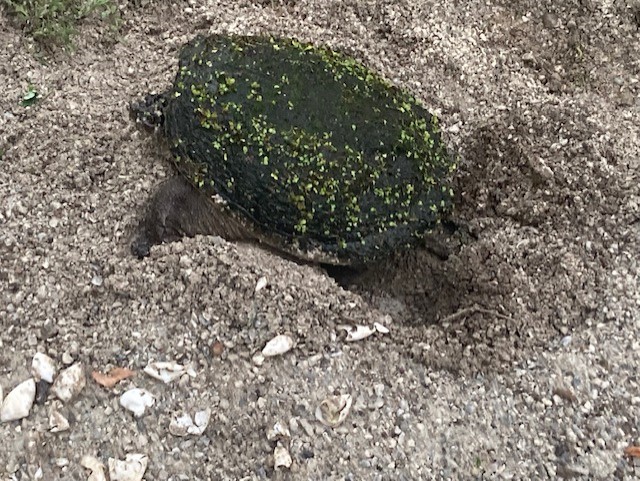
I’ve always wondered at the logical behind this for while I know that loosening up the soil is beneficial perhaps, the smell of the urine attracts racoons and skunks. As you can see in this photo by all the egg shells nearby- there were a LOT of skunks out the other night.
So, I played the newest audio book in my collection as loudly as I could and the voice of Susan Cain reading Bittersweet, How Sorrow and Longing Make Us Whole so that those skunks out there knew I was coming.
I’ve read more than once that less than 10% of snapping turtle eggs survive until hatching in September because of other animals digging them up. As a biologist, I see that and recognize that this turtle is prehistoric and as such, it works for them somehow. However as someone who is ever so slowly getting in touch with his emotions and dealing with strife I can see how others would see this as almost a futile misadventure.
“Other studies have found that sad moods tend to sharpen our attention: They make us more focused and detail oriented; they improve our memories, correct our cognitive biases.”
― Susan Cain
I’m not trying to be anthropomorphic in relating my own situations to a turtle’s – but I have felt that concept of a futile misadventure. Going through the motions of doing something – more for the sake of just doing it than hoping it will repair or help you get ahead. We’ve all felt this – at work, in relationships, or in grief. I don’t only run when sad – but when I am sad I find a run can do me wonders. It is often when I come up with programming ideas.
“Whatever pain you can’t get rid of, make it your creative offering.”
― Susan Cain
My last run this weekend on Sunday had me trying to run faster than the mosquitoes on a muggy morning. The skunks had disappeared for the day but they no doubt would return around sunset. Susan Cain’s voice kept me company once more as we wove between egg laying turtles on the pathway like a student driver around pylons.
And, about 15 kilometres into the run, it began to rain.
Hard.
I’m committed so I finished the run – water dripping off the brow of my baseball cap but as I ran I continued to listen to the value of Bittersweetness.
“bittersweet”: a tendency to states of longing, poignancy, and sorrow; an acute awareness of passing time; and a curiously piercing joy at the beauty of the world. The bittersweet is also about the recognition that light and dark, birth and death—bitter and sweet—are forever paired. “Days of honey, days of onion,” as an Arabic proverb puts it.”
― Susan Cain
One could look at the heavy rain falling as a negative … I could feel the heat draining from me. My clothing became wet and if I went for another hour or so likely would begin chafing. The birds stopped singing and no one else was on the trail.
However, as much as it was a negative – I also recognized that the mosquitoes had given up trying to keep up with me and I had to wonder if the rain would alllow the scent of turtle urine to dissipate and thereby give today’s buried eggs a more promising percentage of survival as well.
I often tell my students and even my staff that,
Water may fall from the sky, but rain is only an attitude.
– RangerRidley
I’m almost embarrassed to say I have have said that in a way that suggests we should always look for the good in the bad. What I am learning about bittersweetness is that I need to be strong enough to stop focussing only on a silver lining in the cloud though.
There is nothing wrong with the rain … rain will fall, we will be cold, we will get wet and we will be miserable in our lives.
“We’re built to live simultaneously in love and loss, bitter and sweet.”
― Susan Cain
It’s not about outrunning it. I will only be on the right trail if I’m willing to run side by side with that melancholy or sense of loss.

Sugar Bush begins in my school board this week. It’ll be great to get back to the smell of sugar in the air as we boil the sap, to hear the Chickadees singing; “Spring’s Here!” and see the first coltsfoot flowers pop up through the snow. However, even more so I’m eager to hear the laughter and excitement of students on the trail and in the sugar shack before we feed them sugar and send them back to the school. (You are very welcome classroom teachers.)
This past month in one of our #EnviroEd chats the incredible @MrSoClassroom one of our Math RT’s in my Board moderated a session on Math Outside.
This isn’t the first time we’ve done this. The equally inspiring @MatthewOldridge did the same a few years back.
A very big part of the job we do in outdoor and experiential environmental education I feel is to answer that age old question; “When am I ever going to use this?” That is to give practical applications to the math being taught in the classroom. the right angle triangle theorem looks nice and tidy on a white board sure – but when you step outside and measure how tall a tree is without cutting it down first using that formula it gives many the student the ah ha moment we all hope to offer our learners.
There is a lot of math in the sugar bush … from ratios, to graphing, to temperature, to circumference and more.
So follow along @RangerRidley the month of March – my goal is to post a short math note on my social media accounts to engage discussion in your classroom. Perhaps this can lead to bell work, or even better yet – questions back from your class to me about what is happening in the sugar bush that day. Perhaps you may even have a suggestion for me for a math share. Let’s keep the discussion on numeracy in the spring going and how you are using the outdoors for this yourself.
It’s all about extending the experience after all.
My goal is to post each Tuesday and Thursday morning.
I’ve been running more again.
A lot more to be honest and it’s been a saving grace during this time of isolation. And, thanks to Ruthie Sloan (T: @RooSloan) I’ve for the first time in my running career been running to music.
As an outdoor educator my music on the long runs for the last 25 years has always been the song of the Eastern Bluebird, chatter of the Red Squirrel or the wind in the pine trees and those are still amongst my favourite melodies. However, having said that – I am enjoying the inspirational playlists that have been sent my way for the trail runs. I find myself picking up the pace or pushing through the mental wall of a run with an enthusiasm I hadn’t necessarily felt when I wasn’t listening to music prior.
Music calms the savage beast – and these days the savage beast many educators are feeling is stress and anxiety. Each of these songs shared with me is a connection – even if running alone I find a song makes me realize that – well – I’m not alone.
And so, I’ve been counting on those playlists elsewhere too. I find myself listening to them travelling from school to school. I’ve been more of a talk radio fan but while VoiceEd Radio never gets boring the news stations on my Satellite radio stations and other talk radio options have done little to perk me up these days. In fact – they tend to make me even grumpier.
So, in a continuation of working on my own and my colleagues mental health in this stressful time – my question to you is what is your favourite song for:
- Exercising
- Being Outdoors
- Stress Relief
Perhaps, I’ll add them to my playlists.
I haven’t been posting for a while.
And, I’m sure I’m not the only educational blogger out there to be trapped in a hibernation like writers block at this time.
As we approach another winter that will see us stepping into the school to take off our scarves only to don our masks – it’s very easy to see the ruts we create for ourselves in times of stress and angst.
There has never ever been a more crucial time for us to put ourselves in 4×4 mode and do our dangedest to get out of the ruts we’ve created in the last winter and a half.
We’ve all been through a lot and the mental stresses I have put on myself alone make me feel like a Stretch Armstrong doll being pulled in a dozen directions.
Merle Haggard wrote, “If We Make It Through December” which I have been lucky enough not to relate to since I first heard it as a lad. I’m still lucky in this regard – but I do find myself humming the tune more often these days.
So, each week in December I will be add a short post here on how I myself am planning on moving beyond the snowy, muddy ruts I have created in pandemic winter months.
Week One: Self Isolation
If you know me, you know I have six awesome, stupendous kids. They now range in age from 23 to 8 and the oldest is the only boy.
And we’ve managed to canoe in the summer, to run around the lake, to jump on the trampoline in the backyard and share campfires.
Even so, I’ve been isolating to the point that many of my connections beyond my immediate family have been watered down to my online PLN’s.
I love my PLN’s … however sometimes it feels like I’m throwing a tennis ball against the school wall and trying to catch it myself. And then I’m posting my success or failure on social media just to let folks know I’m still there.
I miss you.
I’ve begun reaching out to those that made an impact on me prior to COVID-19. And I must admit, in almost every case so far the person I have reached out to has been grateful as they also have felt their own boots stuck in the sticky mud of self isolation.
These have been powerful and insightful reconnections and I think they have been valuable to each of us. To hear that I am not alone. To hear how a friend’s troubles or even their strategies in navigating life in these times relates to my own strategies.
It can be addictive to become insular and we must put a concerted effort into making those connections again. And it takes a recognition of one’s vulnerability to pull those boots from the sticky mud of self induced separation.
So, I’m going to continue to reach out … to engage in friendly conversations and renew friendships – even create some friendships with colleagues I have always had a lot of respect for but haven’t gotten to know all that well.
If I haven’t reached out to you yet – don’t wait. Send me a DM, an email, let’s reconnect. Perhaps we can plan a short walk in the woods or around the school block. You know me – outdoor time is the best time for these things.
Let’s catch up.
No, Let’s play catch … I’m no longer going to toss the ball to the wall
I’m tossing it your way and it takes two to play catch.
Dear friends –
I am a marathon runner. I’ve run 40 marathons in my life so far. For me I suppose it is the challenge of the endurance.
But honestly, everyone is a marathoner in some way.
As an example, I am also a father of six … and this involves an endurance that any parent can relate to.
Now, we can add COVID-19 and so many other considerations outside our own influences.
In both the marathon and in life there are uphills and downhills. Everyone faces challenges in their life. Sometimes we can get through on our own – and sometimes we need to ask for help.
And that’s why I’m running my 41st marathon in support of the Peel Learning Foundation.
The Peel Learning Foundation helps students throughout our schools overcome barriers they face from poverty so they can be as successful as possible in their education.
The Foundation provides support so that students can get clothing, food, soap, deodorant, bus tickets, school supplies, backpacks and many other things. They help students in some of the hardest times of their life – and give them a hand getting through the challenges they face.
As an educator at the PDSB, I’ve seen students who need a hand – as I’m sure you have to. That‘s why the Peel Learning Foundation helps through their Student Emergency Needs Program and the Student Backpack Program.
In the next week or two, I’m going to run the the 2020 Toronto Waterfront Marathon Virtual Race. I have the perfect route planned out – from the gate of the Jack Smythe Field Centre in Terra Cotta, straight down Winston Churchilll to Jack Darling Park. Across the Peel District School Board, as I run through Caledon, Brampton and Mississauga I hope 42 of my friends and colleagues will sponsor me for $42. That’s $1 for every kilometre. Maybe some people will give $21 or $10.50 – whatever people give – it will make a difference.
With your support, every step I take will bring hope for our students. Every dollar raised means that the Foundation can provide students with groceries, clothing or other needed items. And in this time of COVID-19, there’s never been a more important time to support the amazing students in our system and help them build more hopeful tomorrows.
Please support me in help the Peel Learning Foundation help our students by donating at: https://www.canadahelps.org/en/pages/dd-3/
Thank you for your support,
Rob
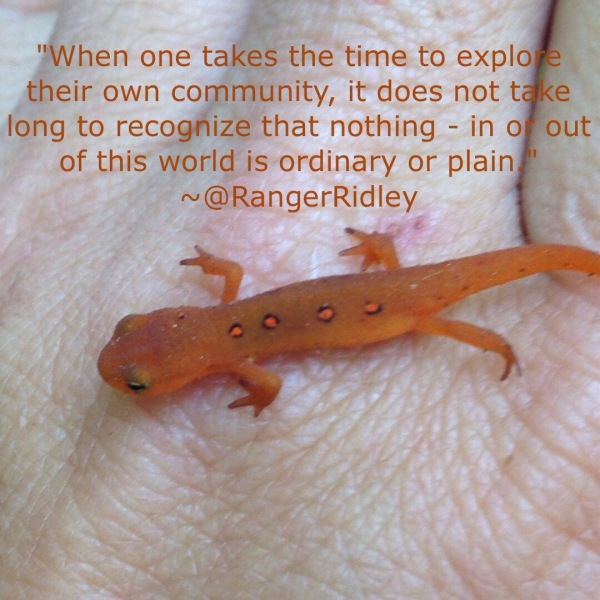
#KindergartenBioBlitz has been around for a number of years now. It has become a world wide venture asking young learners to explore their school yards.
It is a wonderful way for students to explore their school yards and collaborate with other young learners around the world and at the same time correspond with outdoor educators and scientists to further the inquiry into outdoor investigations.
I’ve told stories in the past of how classes who see certain things every day may consider them ordinary or plain but when you share those things online and see them through the eyes of others we see them in a new light.
An example I’ve shared in the past was in the early years of this 7 year old initiative when I shared a photo of a skunk on my front lawn – a class in Australia was excited and said “… that’s Pepe Lepew! We don’t have anything cool like that – just Kookaburra and kangaroos”. Of course classes in Canada were thrilled by that comment and wanted to see the animals that the Aussie class thought were common place.
Each day of the ‘Blitz has a different theme
Monday – I predict …
Tuesday – I notice …
Wednesday – I wonder …
Thursday – This reminds me of …
Friday – Sharing what we’ve learned
It’s simple to participate if you are on Twitter – share images of what you discover and remember the ridiculously long hashtag #KindergartenBioBlitz. If you’d like to see a past example – here is an archive from a year ago in June of 2019
This season with the world in quarantine thanks to COVID 19 we are still going ahead with #KindergartenBioBlitz but our focus is going to be less what the class discovers and we plan on asking families to participate looking into their own backyards or out their apartments and sharing their own nature exploration.
Even the most urban areas will have birds or plants growing in sidewalk cracks which can lead to all sorts of inquiry. Look up – the clouds or the sunrise you have may be intriguing to others. Seasons come to different regions at different times – you may have blossoms where other areas don’t and still other regions may not even have changing seasons. What will you share that is the same as others and what is different?
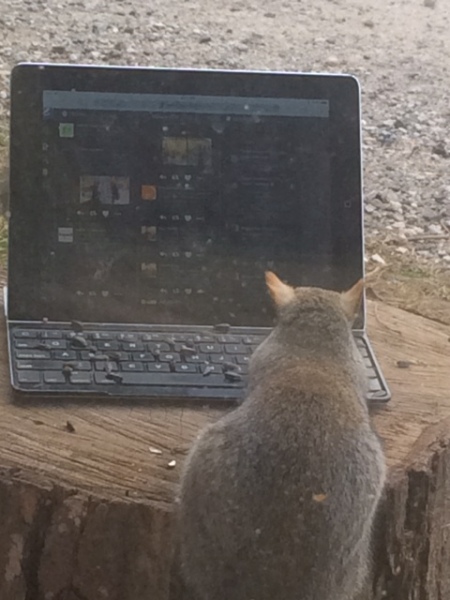
It is important that if you’re family is participating that you consider what you can safely do in your region with quarantines … consider what parks or areas are open and what is not. Consider the importance of social distancing and please share your discoveries but consider the social media safety of your kids (as an example, avoid sharing photos of people without their permission or avoiding showing your exactly location in your sharing). This program is also an excellent tool for teaching the importance of digital footprints. Please participate safely and use it as a teaching tool for your young learners.
Now what makes #KindergartenBioBlitz so enticing is the collaboration not only with naturalists like myself – but with classes and students talking to each other.
If you are a teacher who has participated before, please think about inviting your students at home.
If you are interested in participating with your family you can see how to participate on this Steller story.
Here’s hoping you join in!

Spring is around the corner … The weatherman and the groundhog can use whatever tools at their disposal to tell us exactly when that might happen – but one thing they both agree on is that it is indeed, coming.
Five years ago, in an effort to “extend the experience” of environmental education beyond the day trip we created the #kindergartenbioblitz. Although an insanely large hashtag, it is also an insanely collaborative venture into the realm of natural inquiry for early years teachers.
Although originally meant for teachers within my own Board, it quickly spread to other regions and is now a global phenomenon. Three times a year this week-long inquiry is offered and the February/March version is focussed on the fact that in many parts of the world the seasons are beginning to change. This edition of the ‘Blitz will run from Monday, February 26 to Friday, March 2, 2018.
Each day of the week students are asked a different leading question to help start the investigations of their schoolyard communities. Here is a “story” on how to participate yourself if you have not to this point.
Melting ice, the first migrating species returning, or the maple sap being collected and starting to boil with the taste of syrup in the air. Depending on where you are, this time year means different things to different people.
We’ve had classes from Australia participate where the seasons are the opposite of our in North America. We’ve also had classes from Singapore where the concept of “seasons” is more focussed on the amount of precipitation that falls than changes in temperature. Students tend to become fascinated and begin questioning what each other discovers.
And that’s one of the most powerful things about the #kindergartenbioblitz. It allows classes to not only participate and speak to naturalists about what they are seeing but more importantly ask each other questions about where they live.
When classes from Australia or Chile explain to those in North America that it is not spring where they live, or when classes in Singapore ask classes in other places what seasons even are like since they do not tend to experience them in the same ways it leads to all sorts of questions between students from around the world.
Locally we tie the Seasons’ Changing edition of the ‘Blitz to the Britannia Sugar Bush which in itself is an outstanding way of seeing the spring approach. If following along you’re sure to see some sweet, sweet learning taking place.
So pass the word, join in the #kindergartenbioblitz at the end of February!
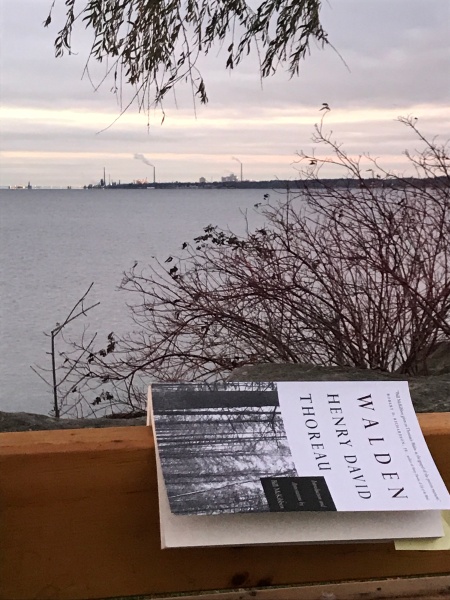
It is a half hour passed the mid-point of the morning. Or perhaps I should just say 6:30 in this digital age and no doubt many are just now waking up to the sound of a beep upon their bedside table ready to start their morning routine. They will hit snooze, pretending they have given themselves other options but eventually they will recognize they have only prolonged the inevitable. They all get up, brush their teeth, get dressed, send their children off to school and begin their morning drive.
The very word “routine” seems to me nothing more than an attempt to create a fancier synonym for “rut” or “rat race”.
This morning, like most mornings I have left early on my occupational sojourn. I too must gladly fill my daily task knapsack with those same items as my neighbours however I have made it a “routine” of my own to make the children’s lunches the night before, place them in the fridge overnight and when I awake in the morning before even the early bird stirs I place those lunches within their school bags, have clothes for the day set out for the younger ones and have placed boots and jackets by the staircase.
I must mention that I could not enjoy my mornings thus without the approval and support of my wife. It has always been true that I have been the Rooster to her Owl. And when we had infants she would look after any feedings until 1 am and I gladly looked after feedings after 3 am. It was only that “no man’s land” of those two hours between that we would look at each other with forlorn.
But I digress and feel I must return to where I began.
Today I am working with high school teachers from Brampton and Mississauga on team building, wellness and collaboration. The school I am to be at for 8:30 is in the southern part of the City and as I live well north of the city lights and traffic I make use of my time to get as far as I can before the beeping of the alarm clock on my neighbours’ acts as a starting pistol for their day.
And so, I find myself sitting at Lakeside Promenade Park in Mississauga at 6:30 am. As the first line of this refection states the morning is over half over and most have not even started their day.
I sit on a bench with a small paper notebook, a felt tipped pen and my copy of Walden by Henry David Thoreau at my side. The sun was barely hinting at its intention over Lake Ontario when I sat down but by the time I have written what I have thus far Apollo’s chariot has risen and the silhouette of the Toronto skyline can be seen.
It is my favourite time of day and I’m thrilled that it happens twice each day. At dusk as well as at dawn the sky can be full of colour whilst everything on the land below is still in shadows.
It’s mid November and the diving ducks have gathered and are flying along the shoreline with rapid intent but not quite ready to continue their migration across the vast lake – once more reminding me of my neighbours and their snooze buttons.
As well as the Mergansers and Scaup I see a few beautiful Buffleheads and even a pair of majestic Swans nearer the shoreline.
Meanwhile the sound of the City behind me, now at almost 7 am must be occurring but is veiled from my hearing by the light lapping of the water, the distance gossip of the Canada Geese and the whistling wings of those diving ducks on a serious mission to go no where in particular.
Being November I stopped by on my way here to grab a Starbucks coffee, a simple Grande Bold for while I do not dismiss the desires of others to have flavours that imitate a coffee to taste like a pie or a fruit, I have always been simple in the regard.
And I think that is exactly why I am sitting here.
As part of our #Walden21st book talk taking Thoreau’s lessons on mindfulness and essentialism we have been given the task of simulating Thoreau’s morning designs. By his own words he attested to be a “worshipper of Aurora”. This is the reason I am writing these thoughts down. Almost anyone that knows me can attest to my early mornings but beyond that I refuse to get caught up in what could only be described as a different or just an earlier routine.
Some mornings I sit upon my back porch with a coffee and read the news. Other dawns see me going for a run and contemplating the day ahead. And still others, like today have me sitting in a natural spot and watching the rest of both civilization – and separately -even my fellow Homo Sapiens begin their “routines”
My father in Alberta often told me growing up that “real cowboys don’t line dance – they’d rather hold their loved one in their arms”. Whilst I find myself each morning dancing to the music we all hear, my own “routine” strives to allow me to take the lead and not get caught up in the automated dance so many others find themselves facing.
I promise myself that these are my last lines as I must head off to begin setting up for the day of mindfulness and character education ahead. Not only that but my fingers are now feeling the November chill even with the sun rising over the City. I have enjoyed sharing this moment with the ducks, the water and the dormant trees in the park to begin my day and it has left me with both a peaceful feeling of being in control of my day ahead and at the same time with a determination and sense of purpose for the day.
That sense of purpose tastes even better than the coffee.
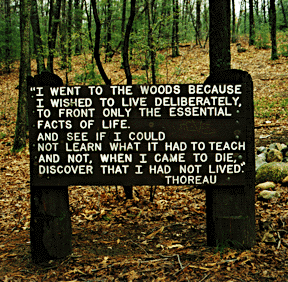
“To read well, that is, to read true books in a true spirit, is a noble exercise, and one that will task the reader more than any exercise which the customs of the day esteem.”~ Thoreau, Walden
Henry David Thoreau first published Walden in 1854. He described his own personal experiences living in an almost fully self-sustaining way. By immersing himself in nature he aspired to gain more of an understanding of his place and purpose through his own 19th Century version of a spiritual journey . By taking into account the values of self-efficiency, self-reflection and the spirit of essentialism, Thoreau influenced generations on the critical value of nature to one’s wellbeing.
Today, over 160 years later, we may not find to time to experience our own 2 year “sit spot” as Thoreau did but many the educator can see the value in such a project. This leads to one contemplating what a likeminded social experiment would look like in our current era.
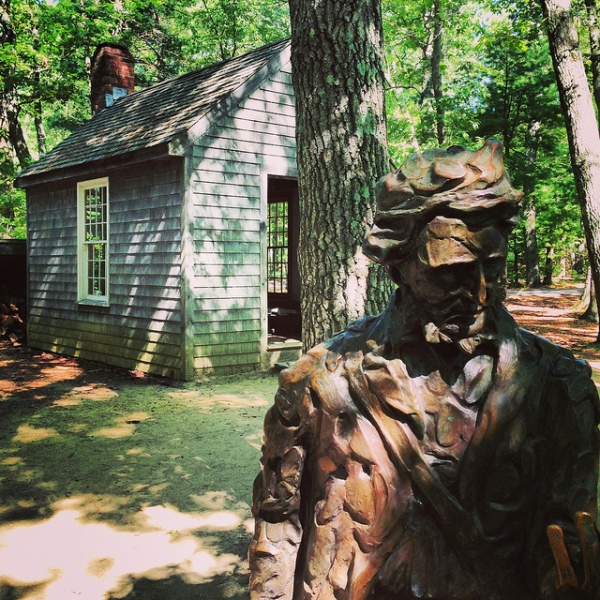
Paul Kelba (Sustainability Consultant, Calgary Board of Education) and Rob Ridley, (Field Centres Coordinator, Peel District School Board) are inviting participants in both elementary and secondary panels to participate in a book talk on Thoreau’s “Walden”. During the month of November, participants will read the classic, discuss the significance of Thoreau’s writings in modern society and discuss teaching strategies around the book.
Participants will be asked to partake in two bi-weekly Twitter chats using the #EnviroEd hashtag. As well, participants will be using and responding via Flipgrid (online sharing platform) on highlights and epiphanies they experience during the book talk. They will be encouraged to use other sharing (personal blogs, journal, podcasts) to reflect upon their learning and reflections.
No previous knowledge of Walden is required.
The organizers as also excited to introduce participants to the concept of gamification of Nature Philosophy as this professional learning progresses via the interactive video game: Waldengame http://waldengame.com
This excerpt is taken from the game developers’ website:
Walden, a game is a first person simulation of the life of American philosopher Henry David Thoreau during his experiment in self-reliant living at Walden Pond. The game begins in the summer of 1845 when Thoreau moved to the Pond and built his cabin there.
Players follow in his footsteps, surviving in the woods by finding food and fuel and maintaining their shelter and clothing. At the same time, players are surrounded by the beauty of the woods and the Pond, which hold a promise of a sublime life beyond these basic needs. The game follows the loose narrative of Thoreau’s first year in the woods, with each season holding its own challenges for survival and possibilities for inspiration.
The audience for the game is broad: from experimental game players to lovers of Thoreau and Transcendental literature. As such, the game offers more opportunities for reflective play than strategic challenge. The piece has a subtle narrative arc, in homage to the original text, which is not an adventure of the body pitted against nature, but of the mind and soul living in nature over the course of a New England year.
The book talk will discuss topics such as nature imagery, essentialism, self as well as literary reflection, wellbeing, connection to the outdoors, and more. This would be an excellent initiative for Humanities, English, Philosophy, Sociology teachers as well as any educator looking for ideas and reasons to discuss best practices for sustainability, environmental education and wellbeing of oneself and their learners.
If interested in joining in, please contact Pekelba@cbe.ab.ca or Rob Ridley, rob.ridley@peelsb.com Space is limited and available equally to both Boards.
Upon enrollment educators will be provided free access to ‘Waldengame’ for their self and students as well as tips on accessing Walden the book.
